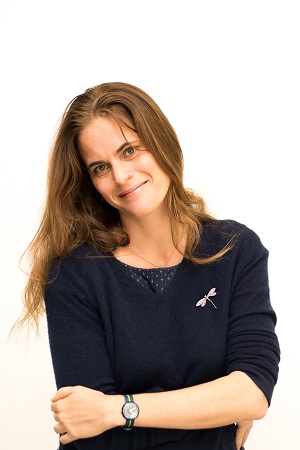We live in a vast world of knowledge and yet many scientific fields predominantly emphasise the contributions of Western knowledge. The importance of decolonising ecology to broaden the reach and impact of the field in an ethical way is the topic of a paper that an anthropologist from the North-West University has co-authored for the 17 May 2021 edition of the prestigious science publication, Nature, Ecology and Evolution.
Senior lecturer Dr Jess Auerbach worked with Dr Christopher H. Trisos of the University of Cape Town and Dr Madhusudan Katti of the North Carolina State University on the paper, “Decoloniality and anti-oppressive practices for a more ethical ecology”.
“It is essential to make the discipline more inclusive, creative and ethical. There are many ways of knowing and doing ecology, and this needs to be acknowledged,” says Dr Jess, who aims to develop a top postgraduate programme in anthropology at the NWU.
“Ecological research and practice are crucial to understanding and guiding more positive relationships between people and ecosystems. Yet ecology as a discipline and the diversity of those who call themselves ecologists have also been shaped and held back by often exclusionary Western approaches to knowing and doing ecology,” she says.
Five actions to start decolonising ecology
The paper is an interdisciplinary collaboration that uses the disciplinary lenses of both the social and natural sciences.
“Some might find it odd that an anthropologist writes a paper on ecology, but ecology itself is influenced by people, their histories, actions and approaches to the places where they have lived. The essence is that the way people go about interacting with ecology is shaped by their knowledge, approaches and intellectual training.”
The paper not only explores the significance of including more knowledge systems in research studies but also gives five practical suggestions on how to transform academic ecological practice. Similar interventions could be developed for other disciplines.
These suggestions are to decolonise one’s mind; know relevant histories; decolonise access; decolonise expertise, and practise ethical ecology in inclusive teams.
Dr Jess says decolonising one’s mind is all about engaging diverse knowledge systems. Inclusion of more diverse forms of knowledge in ecological research, teaching and applied work is already occurring and should be expanded further.
“It is vital to recognise that systemic inequalities of race, access and opportunity have defined the fields we know today, but that this is not a historical inevitability and can be changed. Deeper engagement with the history and philosophy of science, as well as the biographic histories of those practising ecology, are needed as part of fundamental disciplinary training.” Dr Jess says this is why it is important to “know your histories”.
Decolonising access focuses on the importance of open education and securing data rights of collaborators providing data by recognising data sovereignty. This is especially crucial for scholars in under-resourced institutions who, for a variety of different structural reasons, are often unable to access cutting-edge research and data – even when they helped to create it.
Decolonising expertise supports the amplification of diverse excellence. “Expert knowledge is a term many ecologists self-apply with some enthusiasm. When indigenous or localised knowledges are treated as expert knowledge, the pool of available knowledge widens radically.”
Dr Jess says it is essential to build knowledge-sharing processes that are equitable and empowering, ensuring mutual translation and co-production at every step of the research process. “This is critical for ecology to contribute bodies of knowledge that are legitimate, credible and usable for decision-making to benefit people and the ecosystems they inhabit.”
Dr Jess believes in order to address this challenge it is essential to establish diverse and inclusive research teams that actively deconstruct biases so that all team members are empowered participants in developing new knowledge.
She emphasises that the five actions are a beginning, not a checklist for a decolonial ecology. She, Dr Christopher and Dr Madhusudan, invite readers of the journal to make these shifts in their capacity as researchers, teachers and practitioners, in ecology, and perhaps beyond it.
To read the full paper follow this link

Dr Jess Auerbach is a celebrated researcher who has worked not only in South Africa, but also in Angola, Brazil, the South Atlantic, Mauritius and the Indian Ocean. She is the author of From Water to Wine: Becoming Middle Class in Angola (2020) and her second book, Archive of Kindness: the Other Side of the South African Pandemic, will soon be published. This book features work by North-West University second-year students.
